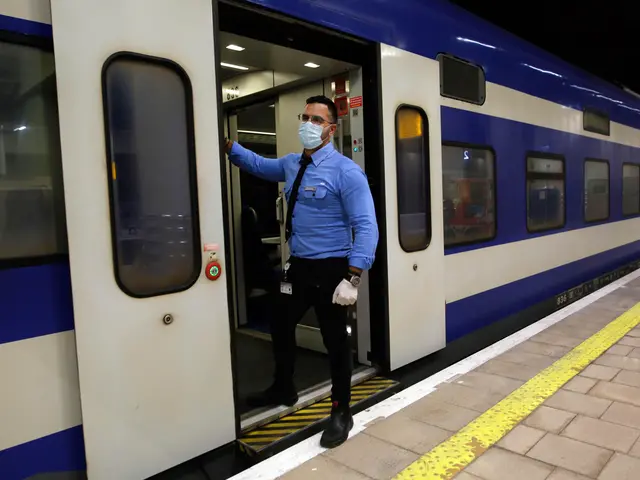As the cases of COVID-19 are on a steady rise, the Israelis are ready for resuming their daily routines.
The national railway services resumed on Monday after months of standstill. Large wedding parties were permitted, and concerts and entertainment shows are scheduled to return in the coming days with a cap of 250 participants.
But simultaneously, Israeli Health Ministry ordered hospitals to reopen their coronavirus-dedicated wards in order to prepare for an influx of patients as the number of the confirmed coronavirus cases continue to resurge.
On Monday, Israel's coronavirus cabinet convened to discuss measures to reign in the virus, while maintaining the economy largely open.
The ministers and health officials were expected to discuss the use of a civilian tracking app that will help cut virus chains and increase enforcement of COVID-19 restrictions such as the obligation to wear a mask at all times.
A total of 307 Israelis have died so far from the infectious respiratory virus, which has infected over 20,000 Israelis since the outbreak in March this year.
The month of May saw a decrease in the cases, partly due to less tests being carried out. However, as the public witnessed decreasing numbers, they were less meticulous about social distancing and mask-wearing.
However, since the beginning of June, the numbers have risen again with a daily report of 100 infections with the virus, peaking at over 300 in last week.
Speaking at the weekly cabinet meeting on Sunday, Israeli Prime Minister Benjamin Netanyahu warned the citizens against immediately changing their behavior.
The government is now faced with a delicate balancing act. The unemployment rate is currently at around 20 percent and the growth of Israel's economy is expected to shrink during 2020.
"The economic problem is so huge that we are not going to close the economy," said Elise Brezis, head of the Aharon Meir Center for Economic Policy at Bar-Ilan University. "Nobody will dare do that again."
"The state needs to be led in a rational manner that will balance between the need to maintain a routine and the need to live alongside the virus," said Dror Mevorach, of the internal medicine department at the Hadassah Medical Center in Jerusalem.
This has not been understood enough yet, said Mevorach, adding that, on one hand, there is too much hysteria about the risks of the virus, and on another hand, not enough preparedness was made.
"We need to learn to live with the virus," Mevorach told Xinhua. "If needed, we have to lock down when a certain threshold is crossed, but we need to keep the economy working as long as we haven't crossed that line."
Just this week, Mevorach and the Hadassah hospital reopened one of their COVID-19 ward, as patients began trickling in again.
Both Mevorach and Brezis believed that the number that Israel needs to monitor is the patients in need of ventilation. While the COVID-19 mortality rate in Israel has been relatively low, close attention needs to be paid to the ability of the health care system to cope with large numbers of critically ill patients.
Currently, there are 29 patients on ventilators in Israel. Health officials believe Israel's threshold should be 50 ventilated COVID-19 patients.
As the number of overall cases increase, the chances of critically ill patients will rise.
"This is a war, and like any war, it's trial and error," Brezis told Xinhua. "We must try to minimize social gatherings without hurting the economy."
(by Keren Setton)
 简体中文
简体中文





















